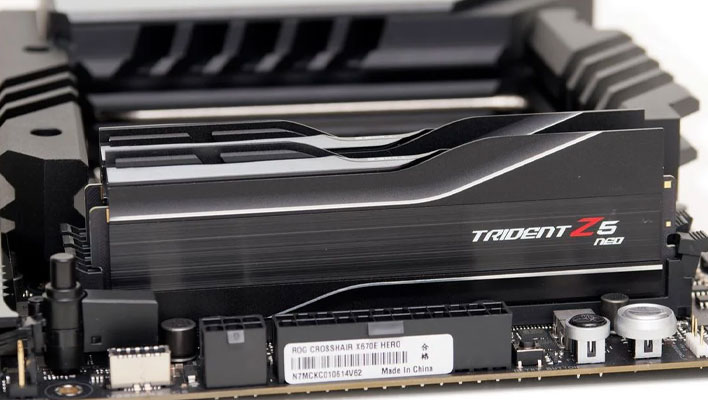JEDEC, the standards body that oversees official memory specifications that get adopted by the industry at large, just gave DDR5 ab important speed boost. The new JESD79-JC5 specification defines a faster 8,800MT/s speed standard, which in theory could lead to wider adoption of speedier DDR5 RAM kits that are more stable to boot, among other benefits.
"This important update to the JEDEC DDR5 SDRAM standard includes features designed to improve reliability and security and enhance performance in a wide range of applications from high-performance servers to emerging technologies such as AI and machine learning. JESD79-5C is now available for download from the JEDEC website," JEDEC says.
JEDEC got the DDR5 party started in 2020 with its JESD79 specification that outlined what's required for speeds of up to 6,400MT/s. The expanded specification for 8,800MT/s is a not insignificant 37.5% increase to the top official speed (i.e., data rate or bandwidth). It also gets us much closer to hitting DDR5-10000 (and beyond) at retail, versus just seeing such breakneck speeds show up in
overclocking demonstrations.
The trade off for the official increase in DDR5's data rate comes in the form of even looser timings, which were already fairly loose (compared to DDR4). For example, the official timings for DDR5-6400 are CL46-46-46. The specs are paywalled behind a $423 report, but according to Anton Shilov at
Anandtech, JEDEC's specs for DDR5-8800
set the timings at CL62-62-62 for premium "A-grade" devices, and CL78-77-77 for C-grade memory chips.
JEDEC also lays out specifications for several data rates in between 6,400MT/s and 8,800MT/s. A grade-A DDR5-8000 memory kit, for instance, can be as loose as CL56-56-56, while the official timings allowed for premium DDR5-7200 kits are set at CL54-54-54.
The official timings are mostly of interest data centers and other mission critical environments. Naturally, we can expect companies like G.Skill to push the envelope in the consumer space with specs that outpace JEDEC's latest standard by using binned chips for top-tier memory modules.
It's also important to note that JEDEC's efforts are ongoing, so in addition to the
latest DDR5 standard, we could see faster speeds and more features become official in the future.

